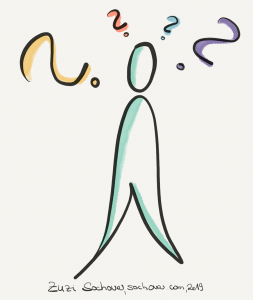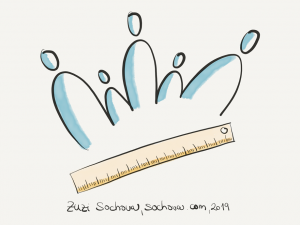 The more organizations shift to Agile, the more they need to redesign how they work with the employees. During this series, we focus on different functions of HR in Agile organization and explain the fundamental shift HR need to do in order to support agility in the organization.
The more organizations shift to Agile, the more they need to redesign how they work with the employees. During this series, we focus on different functions of HR in Agile organization and explain the fundamental shift HR need to do in order to support agility in the organization.
Knowledge and skills are not anymore the key factors of what are we looking for. Agile organization builds on top of the collaboration, encourage innovations and need high flexibility. Experiences are also applicable only to a certain extent. It’s more about having an open mind, being able to learn new things, and collaborate with others to deal with complexity and unpredictability then being an expert with deep but narrow specialization. If you don’t think so, have a look at your own career. How many of you are still having in the same specialization? Most of the people changed their career more than once. And it’s getting even faster. So would you still care about hiring experts with particular specialization? Not really as they create silos and prevent your organization from changing a direction of the business. Agile organization needs people who are ready to learn, inspect and adapt. People who are not afraid to take over responsibility and run experiments. People who are not stuck with one way of working often saying “we always did it this way” and are ready to change their way of work as the business needs it.
Skills are easier to be learned then mindset.
If you think about it, it’s very hard to create a traditional job description based on skills, and experiences as those are soon to be irrelevant. The new advertisement for an open position can say instead:
“We are looking for an enthusiastic, flexible, and open-minded person, who is ready to take over responsibility and collaborate with others on achieving the value. We are a team-oriented organization with a flat structure, which will support you in your personal growth. Join our team for a day to experience our culture. Together we can [achieve the vision].”
Quite different, right? When we tried it, no recruiting company was ready to support our needs. How many years of Java experience they need? What is the position description you are hiring for? No matter if you were looking for developers or new CEO… Quite a mismatch. Eventually, we realized that hiring new graduates is easiest for us. They were flexible, had ideas and be ready to be learned. All we had to do was to create a team learning environment based on pair and team working where they can get things fast. We realize that learning is easier than unlearning old habits, so very often, to get fresh graduates up to the speed was easier then hire Sr. Employees with individualistic habits which were creating more harm than help for the team environment. And that’s a hard message for all people who believe experience years count and shall result in a higher salary. Maybe if you are working for the government, but in Agile space, not necessarily as the recruiters may not care about your traditional company experience years at all.
Unfortunately, a similar experience was with executive search companies, no matter how ‘big name’ of recruiting company you choose. They often had no idea about what agile is, so they are not helpful assessing the candidates, nor finding relevant people either. If you are looking for a leader with an Agile mindset, they are hard to find. Most of the executives are having bad habits acting as directive managers from hierarchical traditional organizations and again, it’s easier to grow leaders from your organization then hire externally.

So if we can’t measure experience and skills and count working years, how shall we find out if the person is the right match? The same as in every other relationship. Let’s start ‘dating’. In this case, it’s about meeting team members at the interview. To be able to talk about the usual day, see if candidates feel attracted and also talk about candidates dreams and visions, to see if there is a match. Once they pass, they can go with the team to lunch. Informal conversation is critically important to learn about each other. And finally, it’s a good practice to offer a candidate one day at the company. To try and feel how it’s gonna look like.
Hiring is more about creating relationship then assessing skills
If you feel uncomfortable with having interviews just like that, and feel a need for more formal assessment, you can try to role play some situations. Again, it’s not about correct answers as there are no correct answers in the complex world, but seeing the behavior and reaction when the candidate is surprised. Those situations are great to know how the candidates react when things go unpredictably. Again, it’s more about personality, approach, and mindset then skills and knowledge.
That’s it. Forget experiences which are mostly irrelevant and skills which are soon to become irrelevant and focus on the relationship and employee experience. That’s the only way how you can be successful in finding the right employees and truly supporting the culture of the organization.


